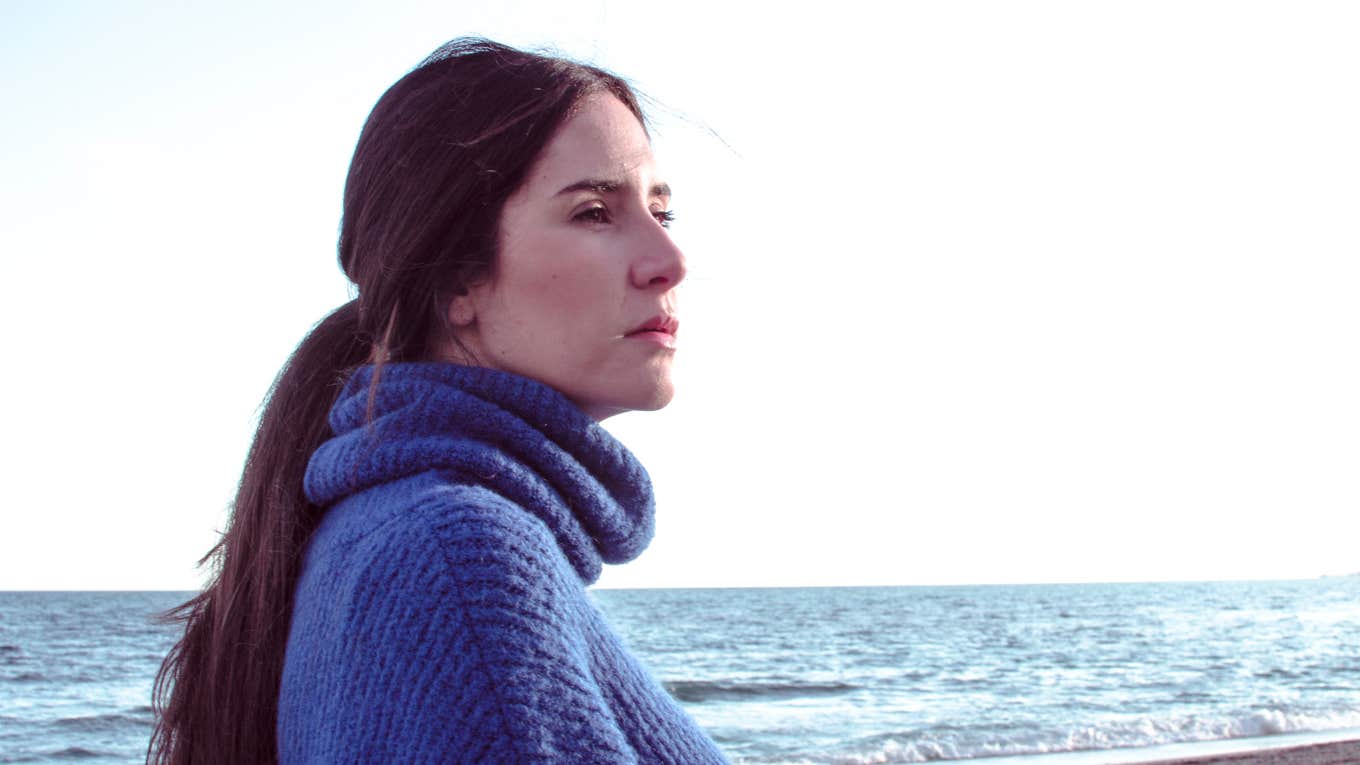The ‘Definitive Symptom’ That Suggests Someone Had A Traumatic Childhood, According To Therapists
"You can't get blood from a stone," as the old saying goes.
 Javi_M_Bravo | Getty Images | Canva Pro
Javi_M_Bravo | Getty Images | Canva Pro Nowadays, we know that a traumatic childhood has all kinds of adverse impacts, from a whole litany of mental illnesses and even sometimes physical ailments.
But those are just diagnoses. How our trauma impacts our day-to-day lives and relationships is where the rubber really meets the road.
Therapists Dr. Ramani Durvasula and Patrick Teahan say that the long-term impacts of a difficult childhood ultimately boil down to one very simple impact, and it affects nearly every relational part of our lives.
The therapists say that the definitive symptom of a traumatic childhood is trying to force people to be good to us.
Dr. Ramani Durvasula, or Doctor Ramani as she's known online, is a clinical psychologist who is an expert on the internet's favorite hot-button psychology topic, narcissism, and the dynamics it brings to relationships.
She recently sat down with therapist Patrick Teahan and asked him a question we've probably all wondered about at one time or another: "What do you consider to be the definitive symptom of childhood trauma?"
Teahan, a specialist in childhood trauma, replied that it all boils down to one thing. "It's about trying to get a difficult person to be good to us."
The therapists say childhood trauma puts us on a quest to change others so they'll give us the love we were denied as kids.
"Wait, wait — say that again," Doctor Ramani replied to Teahan's unexpectedly simple answer. "I mean, that's it — that right there. If we stop the show here, you've just given us the wisdom for the ages."
Doctor Ramani went on to say how common and universal this experience is among people who had traumatic childhoods. She explained that what starts with our emotional needs not being met as kids tends to balloon out into our other relationships.
"So many people… tried to get the parent to love them," she said, "[and] then went to a series of relationships in adulthood where the entire relationship was about getting that dysfunctional, harmful, difficult, toxic person to be good to them." Sound familiar?
It reminds me of a piece of "tough love" advice a friend gave me in the midst of a devastating blow-up with my mother when she disowned me for being gay. In the midst of my unraveling, my friend asked me, "What do you actually want from her?"
I said that I felt like I could move on if my mom would just hear me out and apologize for the cruel things she'd said. "But she's never going to do that," my friend said. "And she is never going to do the work on herself that would make her capable of doing that. So where does that leave you?"
It left me, frankly, "trying to get a difficult person to be good to me," in Teahan's words. Painted into a corner, held hostage by the "will she or won't she" of my mom's willingness, let alone ability, to be vulnerable and open — a losing battle if there ever was one.
Doctor Ramani and Teahan say it all comes down to a lack of a sense of self we were unable to cultivate as kids.
When you're fighting for your basic emotional, if not physical, survival as a kid, you don't have the bandwidth or the tools to properly develop psychologically and emotionally. That's basically what childhood trauma is all about.
Teahan and Doctor Ramani explained that this ultimately manifests in a learned inability to look within ourselves for our own needs. "For people who grow up with a difficult parent," Teahan said, "there is a lack of sense of self in there."
In short, we cling to others to give us what we know we're missing, and it can impact every relationship in our lives, from our friendships to our romantic partners and even our bosses.
"It's familiar," Teahan said of that struggle, and that keeps us locked into it. "We will spend a lifetime in patterns of relationships, whether it's a boss or a partner or friends."
So what's the antidote? "The missing ingredient is our own goodness and our own power," Teahan said. And it basically comes down to the difficult truth that old friend of mine hit me with years ago.
"The turning point is when people kinda go, eff this!" Teahan said. "I'm never gonna win with this level of difficulty. And why am I doing it? Why am I compelled to keep doing this dance with somebody who just sets me up for failure?"
That's certainly easier said than done. In my case, it took a lot of therapy to finally come to a place where I could disengage from trying to get blood from a stone where my mom was concerned.
But the good news is that the "sense of self" that Teahan and Doctor Ramani say is so often missing from those of us with traumatic childhoods CAN be taught and learned. And just merely recognizing the tendency is a giant step forward to finally moving on.
John Sundholm is a news and entertainment writer who covers pop culture, social justice, and human interest topics.

